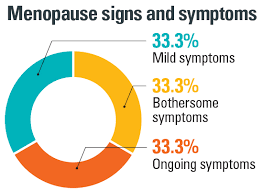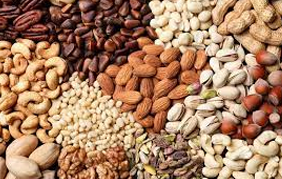Foods That May Delay Menopause
Menopause is an inevitable and transformative phase in a woman’s life, signifying the cessation of menstrual cycles and the end of reproductive years. While this biological transition is a natural occurrence, the associated symptoms can often pose challenges to a woman’s physical and emotional well-being. However, amidst the intricacies of this journey, there lies a realm of nutrition that holds promise in alleviating discomfort and potentially delaying the onset of menopause.
In this comprehensive blog, we will delve into a diverse array of foods that have garnered attention for their perceived benefits during the menopausal transition. These foods are not merely sustenance; they are considered potential allies in navigating the nuanced landscape of menopause. As we explore each category, we will unravel the nutritional components, scientific theories, and traditional wisdom that underpin their reputation as supportive elements during this significant life stage.
First and foremost, we will scrutinize the role of phytoestrogens, plant-derived compounds that bear structural similarities to the estrogen produced by the human body. Certain foods rich in phytoestrogens, such as soy-based products, flaxseeds, and legumes, have been theorized to mimic the effects of estrogen in the body, potentially providing relief from some menopausal symptoms.
Our exploration will extend to the realm of vitamins and minerals, examining how a diet fortified with specific nutrients can contribute to bone health, heart health, and overall well-being during menopause. Foods rich in calcium, vitamin D, and omega-3 fatty acids will take center stage as we discuss their potential impact on mitigating common concerns associated with this life stage.
Furthermore, we’ll delve into the significance of maintaining a balanced and varied diet to address the metabolic changes that often accompany menopause. The inclusion of fruits, vegetables, whole grains, and lean proteins will be emphasized, offering a holistic approach to nutritional support.

Understanding Menopause:
Before delving into specific foods, it’s essential to grasp the basics of menopause. Menopause marks the end of a woman’s reproductive years and is characterized by a decline in estrogen levels, leading to various physical and emotional changes.
Foods That May Delay Menopause
1. Soy-based Delights:
Soy contains compounds called phytoestrogens, which mimic the effects of estrogen in the body. Tofu, soy milk, and edamame are excellent sources. Including soy in your diet may help balance hormonal fluctuations.
2. Flaxseeds for Hormonal Balance:
Rich in omega-3 fatty acids and lignans, flaxseeds have gained attention for their potential hormonal benefits. Ground flaxseeds can be sprinkled on cereals or added to smoothies for a nutritious boost.

3. Colorful Berries:
Berries, such as blueberries and strawberries, are packed with antioxidants. These antioxidants may contribute to overall health, potentially easing some menopausal symptoms and supporting the body’s natural processes.
4. Calcium-rich Greens:
Menopausal women often experience a decline in bone density. Incorporating calcium-rich greens like kale, broccoli, and bok choy can be beneficial for maintaining bone health.

5. Nuts and Seeds:
Almonds, walnuts, and sunflower seeds are excellent sources of essential nutrients. Their vitamin and mineral content may offer support during menopause.
6. Fatty Fish for Omega-3s:
Cold-water fatty fish like salmon and mackerel provide omega-3 fatty acids, which are known for their anti-inflammatory properties. Including these fish in your diet may contribute to overall well-being.
7. Whole Grains for Sustained Energy:
Opting for whole grains like quinoa and brown rice provides complex carbohydrates, promoting sustained energy levels. This can be particularly helpful during times of fatigue associated with menopause.

8. Mediterranean Diet Principles:
The Mediterranean diet, rich in fruits, vegetables, olive oil, and fish, is associated with various health benefits. Some studies suggest that adhering to these dietary principles may positively impact menopausal symptoms.
Incorporating These Foods: While these foods may offer potential benefits, it’s crucial to remember that individual responses can vary. Consulting with a healthcare professional or a nutritionist is advisable before making significant changes to your diet, especially during menopause.
While menopause is a natural phase, the journey can be smoother with mindful dietary choices. Incorporating these foods into your meals not only supports overall health but may also contribute to a more comfortable transition. Embrace this phase with grace and prioritize your well-being.












One thought on “Foods That May Delay Menopause”